Text
The Operatic Life of Nancy Storace, Guest post by Elaine Thornton
I am delighted to welcome Elaine back to All Things Georgian who previously wrote about Marylebone Gardens and the Trusler Family and today’s article is a follow on from that, so enjoy:
Ann Selina Storace, known as Nancy Storace, was one of the most famous opera singers of her time. She was born in London in 1765. Her mother, Elizabeth, was the daughter of John Trusler, a pastry cook who ran the…

View On WordPress
0 notes
Text
Wearing the white sheet - Act of Penance
Many of you may have watched the TV series, Game of Thrones, in which Cersei Lannister was required to perform the naked walk of shame through the streets to repent for her sins.
This and similar practices were carried out in previous centuries, most famously the walk of shame by Jane Shore, as can be seen in this 18th century depiction of it:
Penny, Edward; Jane Shore Led in Penance to Saint…

View On WordPress
0 notes
Text
18th century umbrellas
As we are approaching April which is synonymous with showers, I thought I would take a fairly visual but humorous glimpse into the use of umbrellas in the Georgian era.
Umbrellas were not invented in Britain, but became popular in the late 18th century, with many initially being imported from India. An umbrella or parasol was used during the Georgian era by ladies to protect themselves from the…

View On WordPress
0 notes
Text
A duel – Arthur Annesley Powell v Lord Falkland
I have previously written about Arthur Annesley Powell, but was recently contacted by Louise LeGrand, the resident historian and archivist at Quex Park Estate who wished to find out more about the life of Arthur Powell.
In the previous article I mentioned that Powell was involved in the shooting of Charles John Cary, 9th Lord Falkland (1768-1809), but I didn’t elaborate further at that time, so…

View On WordPress
0 notes
Text
Guest post by Lynda O'Keeffe - A Curious Herbal Elizabeth Blackwell’s Pioneering Masterpiece of Botanical Art
Today, I have the pleasure to welcome back Lynda O’Keeffe, with her article to mark International Women’s Day.
Elizabeth Blackwell was a botanical illustrator and author who was best known as the author, artist and engraver for the plates of A Curious Herbal published between 1737 and 1739.
Lithograph portrait of Elizabeth Blackwell (c.1700-1758)
There are two Elizabeth Blackwells notable in the…
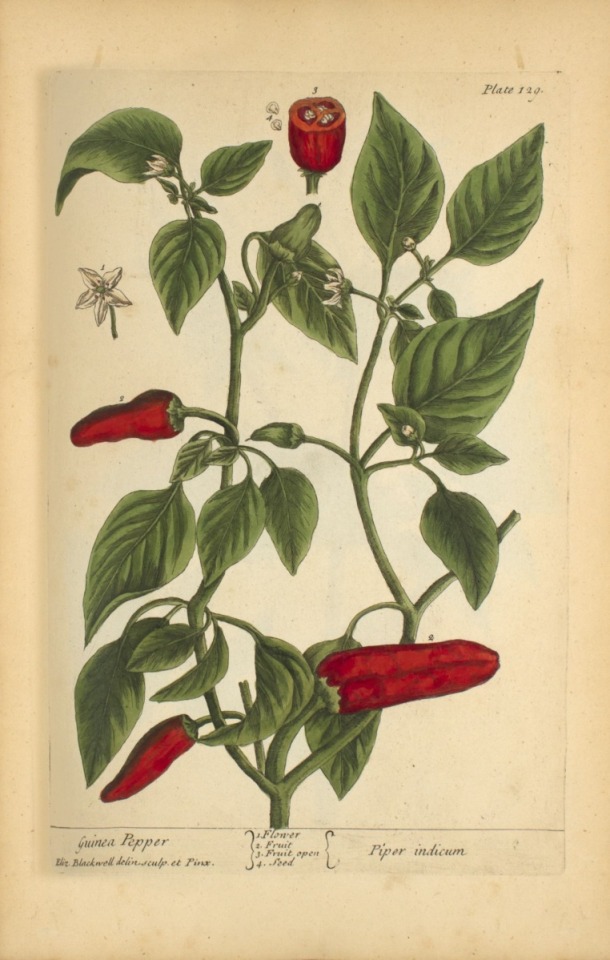
View On WordPress
0 notes
Text
Guest post by Jim Symington - Catherine Clements and Selina Diana Catherine Milner
Today, it is my pleasure to welcome Jim Symington to All Things Georgian. Jim contacted me a while ago about an article I had written ‘Art Detective: the Portrait of Catherine Clemens and her son, John Marcus Clements’ {1}. This prompted his curiosity about the history of Catherine Clements and her granddaughter Selina Diana Catherine Milner (1804 -1834). Jim retired as a Consultant working in…

View On WordPress
0 notes
Text
Princess Poniatowski’s visit to England, 1767
We often think of young men from England embarking on the Grand Tour of Europe, but today’s article is about a Polish visitor to England, who embarked on her own mini Grand Tour of England during the summer of 1767.
Princess Apollonia Poniatowski (c1736-1814) was married to Kazimierz Poniatowski (1721-1800) her second husband, having been divorced from her first husband several years previously.…
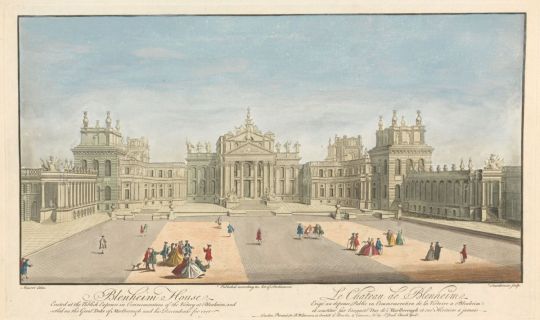
View On WordPress
#Count de Viri#Kazimierz Poniatowski#King Stanislaw August Poniatowski of Poland#Prince de Ligne#Princess Apollonia Poniatowski#Ralph Payne 1st Baron Lavington
1 note
·
View note
Text
Preserving the Memory of Midshipman Richard Sutherland Dale
I am delighted to have a returning guest join me today, Judith E Pearson, who has shared with us a couple of previous articles.
On 22 February 1815, US Navy Midshipman Richard Sutherland Dale, feverish and in pain, his right leg recently amputated at sea, died in Stennett’s Hotel, St. George’s, Bermuda. He was the last US officer to perish in the War of 1812; ironically, 60 days after the Treaty…

View On WordPress
0 notes
Text
John Macdonald and the ‘Queen of Scots soup’
A while ago I came across the Memoirs of an Eighteenth Century Footman (1745-1779) published in 1790, which is well worth reading. As to how truthful some of it is, I remain slightly sceptical. However, during his life John Macdonald took on a variety of household roles from postillion, to footman to valet etc, and seemed to have rubbed shoulders with many of the gentry of the day.
I first…
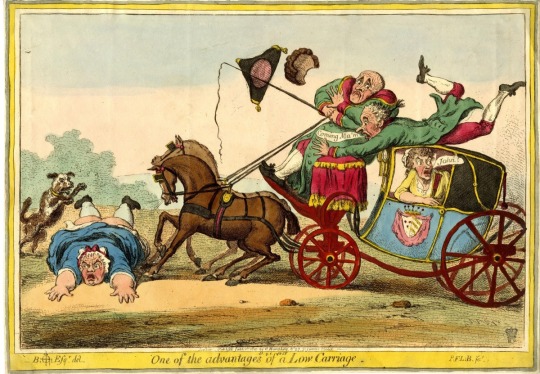
View On WordPress
0 notes
Text
Guest post by Roderick Tulloch - Cosmo Alexander, painter and Jacobite soldier (1724-1772)
Today I am welcoming a new guest, Roddy Tulloch to All Things Georgian. Roddy is a Trustee with the Falkirk Muir 1746 Charitable Trust. The Trust was set with the aim to establish a new museum to commemorate the various, mainly 18th century, Jacobite Risings.
The Museum has one of the largest and most important collection of Jacobite artefacts in the UK. Some of these artefacts can be seen in…

View On WordPress
1 note
·
View note
Text
Forgotten in life, the desperately sad tale of Benjamin Surr (1784-1820)
This is the tragic tale of a man who lived in one of the poorest areas of Leeds for the entirety of his sad young life. Virtually forgotten in life, it feels only right to remember him now.
In December 1819 a man was discovered incarcerated in chains the cellar of his home in Black Bank, Leeds, but how was this discovered?
The week before this discovery, Benjamin Surr’s mother, Elizabeth,…

View On WordPress
0 notes
Text
Guest post by Elaine Thornton, 'The Countess and the Cello Player'
Today I’m welcoming back, a now regular guest to All Things Georgian, Elaine Thornton and today she is going to tell us more about an 18th century scandal and mystery.
In the mid eighteenth century, arranged marriages were still common in aristocratic families. After a couple of male children had been born, guaranteeing the succession, it was not unusual for both husband and wife to lead separate…
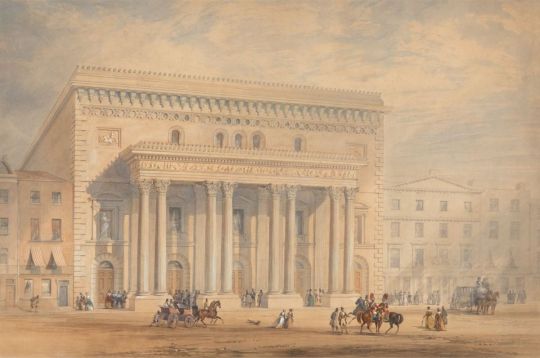
View On WordPress
0 notes
Text
What is the connection between Exeter ‘Change and The Crescent, Buxton, Derbyshire?
On the face of it there is no connection between the two places, especially as they are almost two hundred miles apart, however, it is not the structures, but the people within them who provide the link, as we will soon discover.
Readers will no doubt be aware of Exeter ‘Change, and those living in the early 1800’s most definitely would have been aware of it, as it was where Gilbert Pidcock, …

View On WordPress
#Gilbert Pidcock#St Ann&039;s Hotel Buxton#The Centre Hotel Buxton#The Crescent Buxton#Tideswell Derbyshire
0 notes
Text
The 1820's 'Swell Mob'
Towards the very end of the reign of George IV saw the emergence of a gang of well heeled men who became known by the name of ‘The Swell Mob’. Today we’re going to take a look at a few of them and their various misdemeanours.
Let me introduce you to the first two – James Shields aka Tit Shields, Harry Prendergast aka the Elephant.
We begin in May 1827 with James Shields, an ancient practitioner…
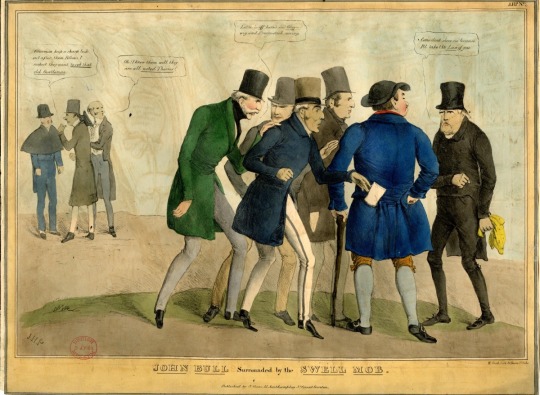
View On WordPress
1 note
·
View note
Text
Guest post by Dr Paul Main - The Story of the Hotwell at Bristol
It is always a pleasure to welcome a new guest and today I am welcoming Dr Paul Main, who, in his own words, ‘having spent forty years serving as a GP and GP educationalist in the NHS, I’m now retired and live in Bristol. In retirement I have spent some time exploring my love of history, which I sadly had to ditch aged fifteen, as I was on the science track. My particular interests are local…

View On WordPress
0 notes
Text
The price of sending your child to school in the early 1800s
Having previously written about setting up Georgian schools, I thought I would take a look in the classified adverts of the early 1800s to find out more about school fees, as towards the end of the 1700s and into the early 1800s fee paying educational establishments were popping up all over the place for both boys and girls.
It is very difficult to establish exactly what regulations, if any,…

View On WordPress
0 notes
Text
Vagabonds in late Georgian London
It is always a pleasure to welcome back guests to All Things Georgian and today, joining us is R M Healey who is taking a look at vagabonds.
Patrick Colquhoun, who we have met before in a post on capital punishment, was a magistrate concerned with measures that might diminish crime in late Georgian London.
Patrick Colquhoun (1745-1820); Thames Police Museum; unknown artist
His pioneering Treatise…

View On WordPress
0 notes